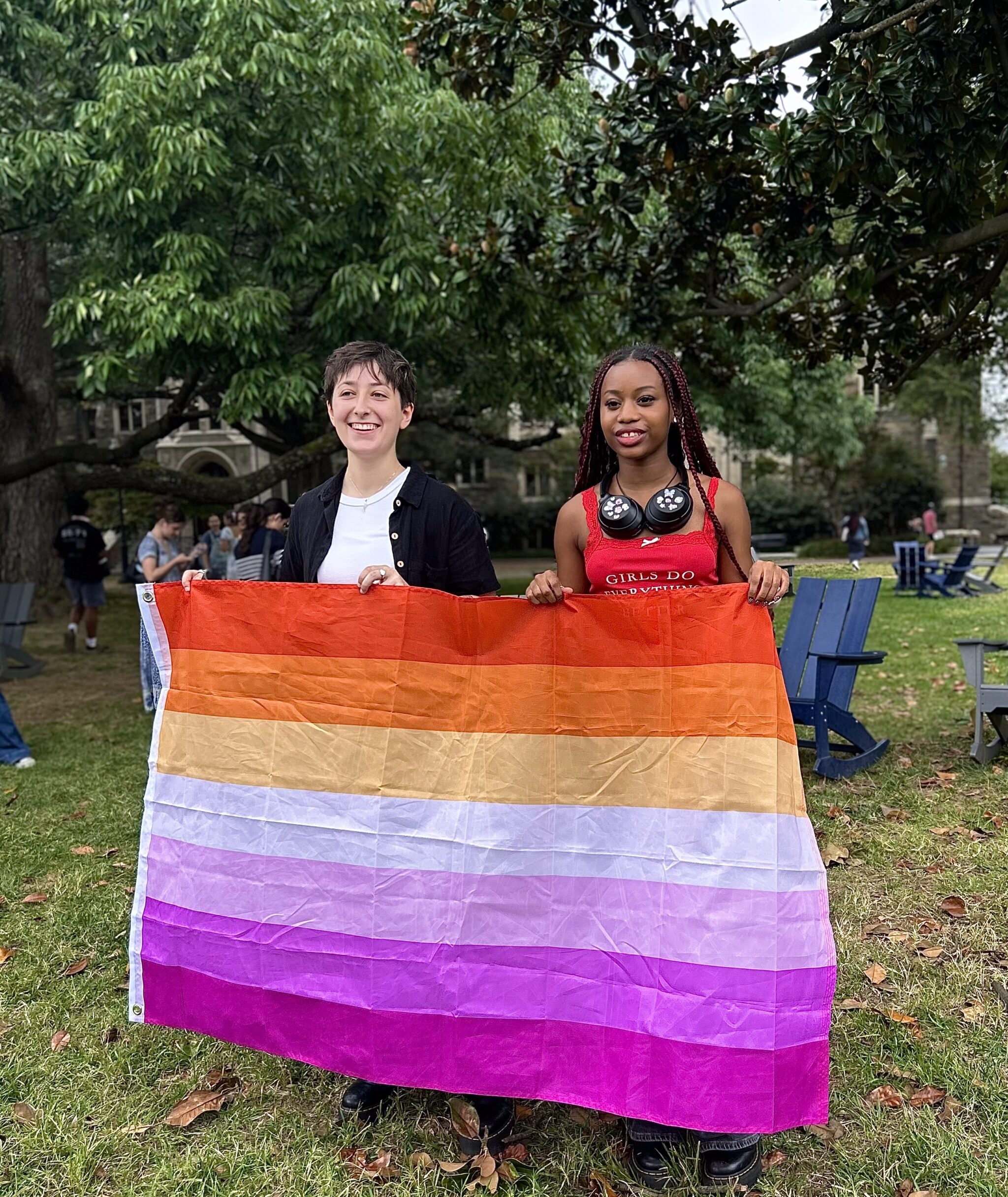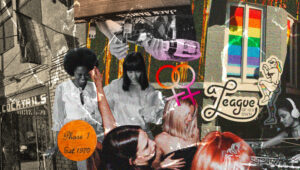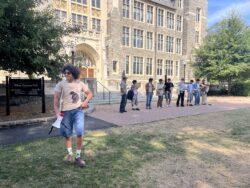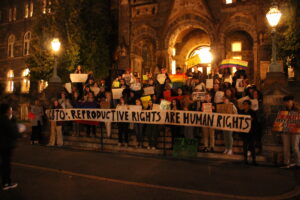Dr. Martens, feminist literature, and carabiners galore decorated Copley Lawn this past Sunday as contestants eagerly fought for the title of “Most Performative Lesbian.”
Nick Hasbun (CAS ’28), who hosted the Performative Male contest a week prior, made a brief cameo to introduce the event’s host: Paige Benish (SFS ’28).
Four femmes, eleven mascs, and one futch—a lesbian who exhibits a balance of both masc (or butch) and femme traits—captured the attention of a 60-person audience.
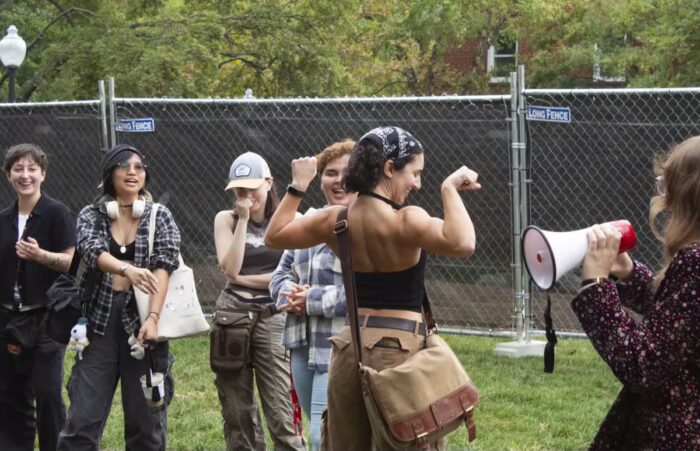 Photo by Emma Le Breton
Photo by Emma Le Breton
Benish hosted the contest to celebrate women and queerness as part of a larger effort to bring more joy and whimsy to campus.
“Queerness makes the world go round. Everything good in culture—pop music, long hair, flannels—anything that we’ve ever seen become popular as a trend was started with a queer person being themselves,” Benish said.
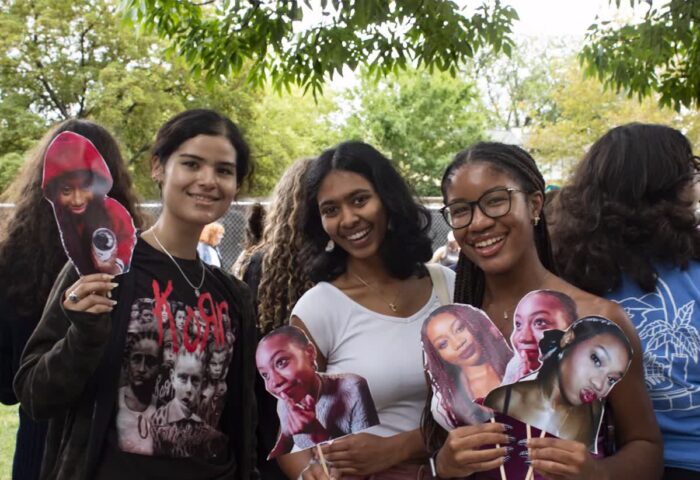 Photo by Emma Le Breton
Photo by Emma Le Breton
Questions for contestants included a classic fit check, whether they can remain friends with their exes—many contestants have tried, few have succeeded—and planning their dream date. Many contestants’ dream dates started and ended in bed and involved a vegan pastry or museum.
Benish tried to stump the masc lesbians by asking them to guess the price of a U-Haul rental. The stereotype that lesbians move in with their partners soon after dating inspired Benish’s challenge question. But one contestant named the exact base price and rate per mileage, sending the crowd into an eruption of cheers.
Friends of Performative Masc champion Lili Linder (CAS ’26) paid her $100 to enter the competition. Though the monetary reward might have enticed her, she ultimately (no pun intended) found another benefit to joining the contest.
“I am on the ultimate frisbee team, so I have been connected to the queer community,” Linder said. “I love to see us come together. It was a good time.”
Ama Mensah-Boone (SFS ’28) was proud to be crowned Georgetown’s number one Performative Femme.
“Being a lesbian, it’s so fun,” Mensah-Boone said. “There’s a lot of pushback in general to make everything about men. I like being able to be around other people where we can have conversations and a collective understanding.”
The contest was abounded with “lesbian-coded” items like flannel jackets, Japanese Breakfast albums, and famed fictional rabbit Miffy. However, Mensah-Boone said that not all lesbian stereotypes are universal.
“People get kind of confused because they just think you’re being a girl,” Mensah-Boone said. “But, personally, I identify as nonbinary. So it’s more about the performance of femininity than actually being a woman, which I think are two separate things.”
Mensah-Boone is also a member of Georgetown University Queer People of Color (QPOC).
“Being a Black woman is just a completely different lived experience and, intersectionally, is a very interesting place to be in,” Mensah-Boone said.
In a political climate that threatens marginalized people’s rights, celebrating queer culture is crucial, Benish said. Since 2021, half of the 50 U.S. states have passed bans on gender-affirming care for trans youth. Throughout its second term, the Trump administration has continued to rescind regulations protecting LGBTQ+ people from discrimination.
The Trump administration’s attacks on LGBTQ+ rights across university campuses and Georgetown’s proximity to the government brings the issue close to home, Benish said.
“In the limelight and being in DC, Georgetown has a particular magnifying glass on it of what we’re doing,” Benish said. “As both a queer and intersex person on this campus, I feel like it’s my responsibility to continue to be myself as loudly as I can.”
Benish encouraged students who enjoyed the contest to go to protests, sign petitions, and engage in other types of advocacy for queer people.
“If you like us so much, please help us preserve our own rights,” Benish said.
Editor’s Note: Paige Benish is the spread editor for the Voice.


